A Champion of Learning by Doing
Holly Hurlburt helps students familiarize themselves with NC State’s campus — and the wider world around them.
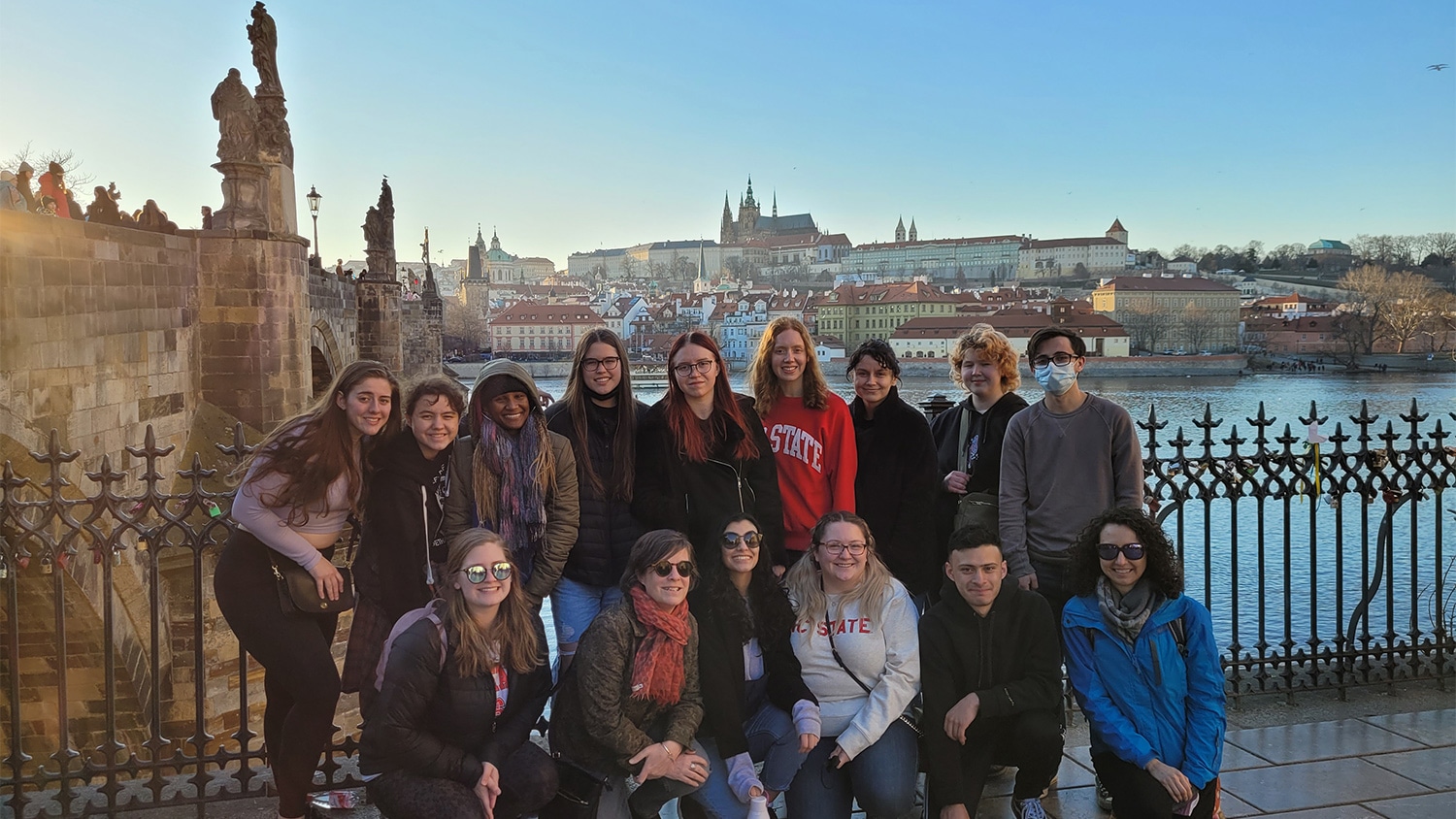
When Holly Hurlburt began serving as NC State’s associate dean of academic enrichment programs for University College in 2019, one of her primary goals was to never lose touch with students. That’s why, despite overseeing four programs — the University Honors Program, the University Fellowships Office, the Office of Undergraduate Research and the First-Year Inquiry Program — she never misses the opportunity to attend student research presentations and senior award ceremonies, teach classes and even lead trips abroad.
“These kinds of interactions with students are incredibly good for me, not just because it helps me understand what they’re going through, but I learn from them as well,” Hurlburt said.
One of Hurlburt’s favorite parts of her job is seeing students apply what they’ve learned in the classroom in the real world — especially in a foreign country. This past summer, Hurlburt led 34 students from seven different colleges with over a dozen different majors traveling to Florence, Italy. During the five-week program, students lived and learned at the Lorenzo de’ Medici Institute, where they took a course on the history of the Italian Renaissance and an additional course of their choice. Some of those classes included jewelry making, photography and drawing.
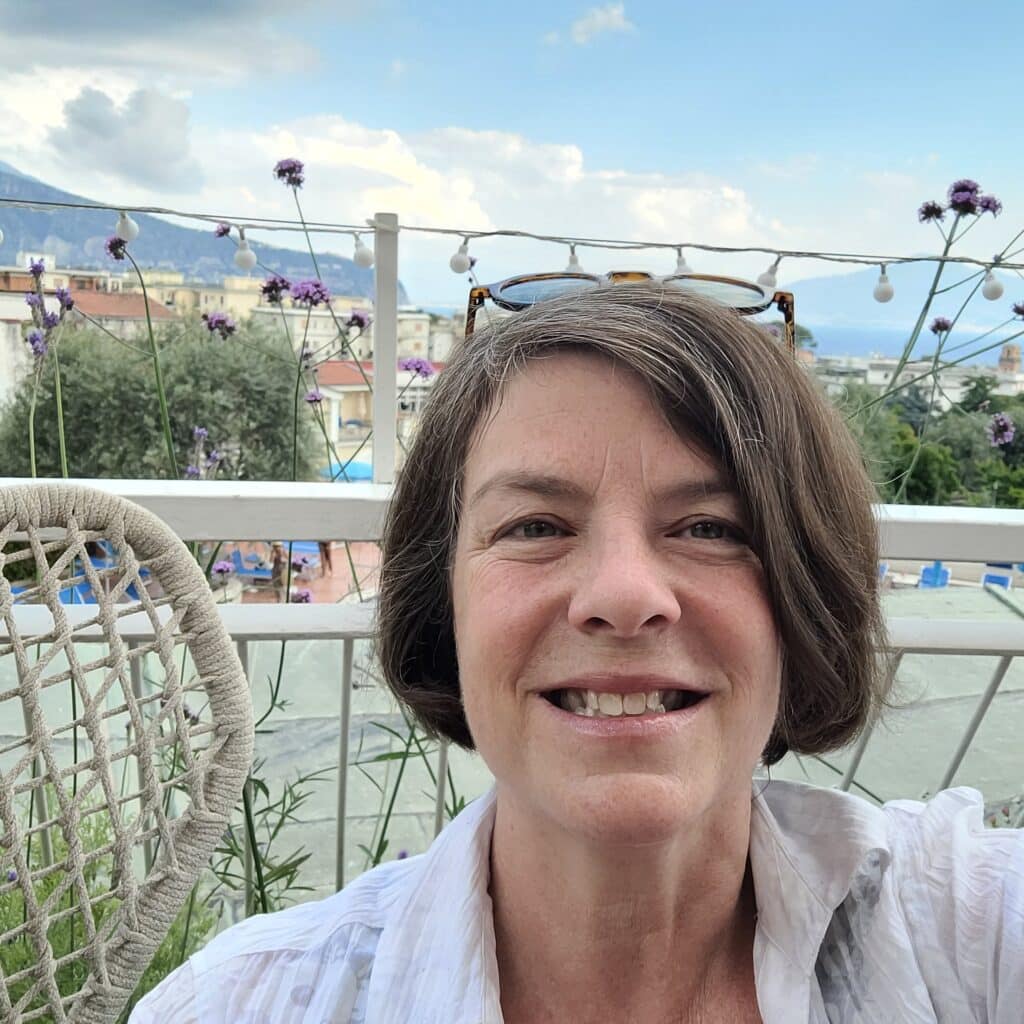
While the trip was technically a partnership between the Lorenzo de’ Medici Institute and the University Honors Program, NC State students outside the program were also eligible to attend. In fact, more than half the students who participated this summer weren’t members of the University Honors Program.
“We regard everyone at NC State as having honors potential, so whether or not you choose to be part of the program and commit to the time it takes, those who meet a particular academic or intellectual status are invited to come along,” Hurlburt said. “But it does come with certain expectations as well. If you’re studying abroad in the Honors Program, we expect you to bring your A-game in terms of being interested and engaged and finding ways to really get to know the communities you’ll be visiting. The students who came on this trip did just that.”
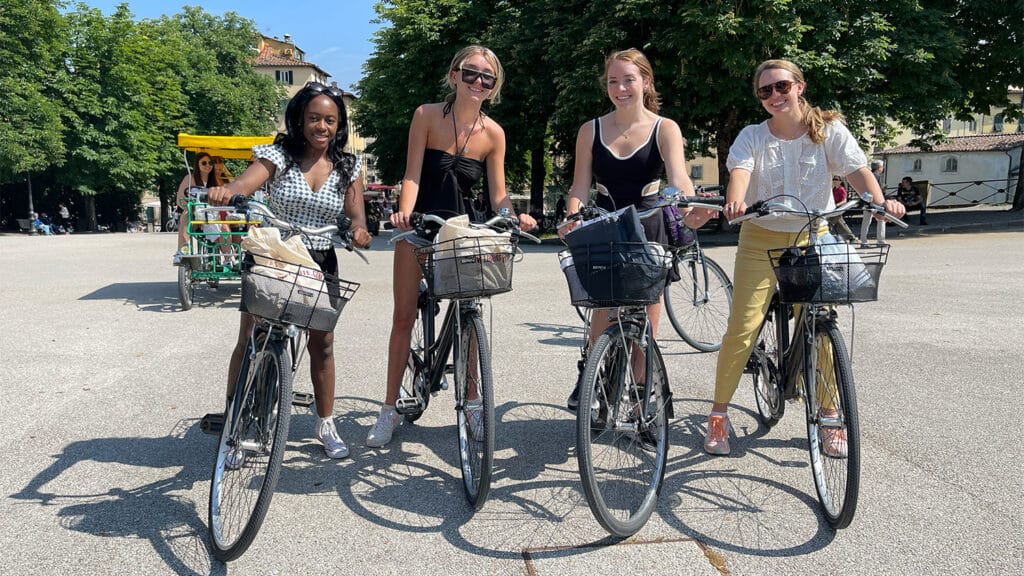
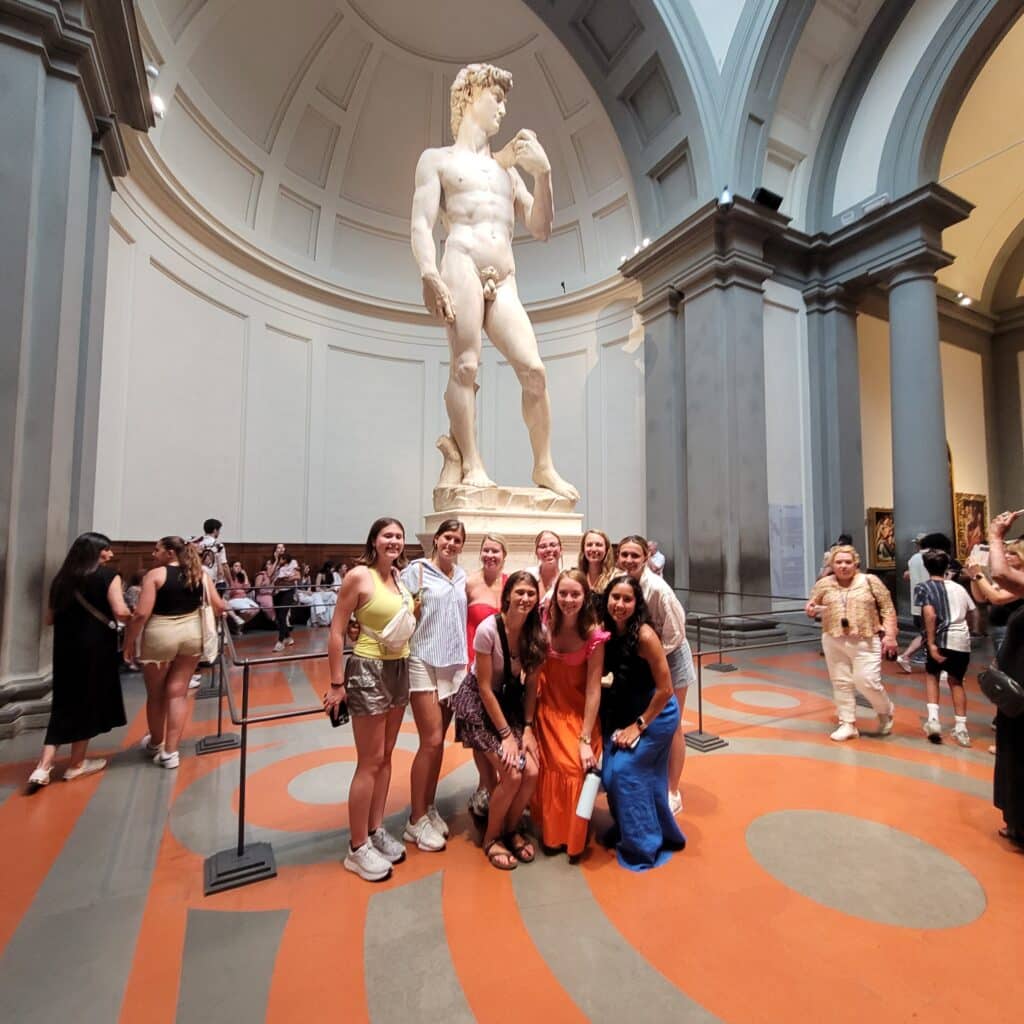
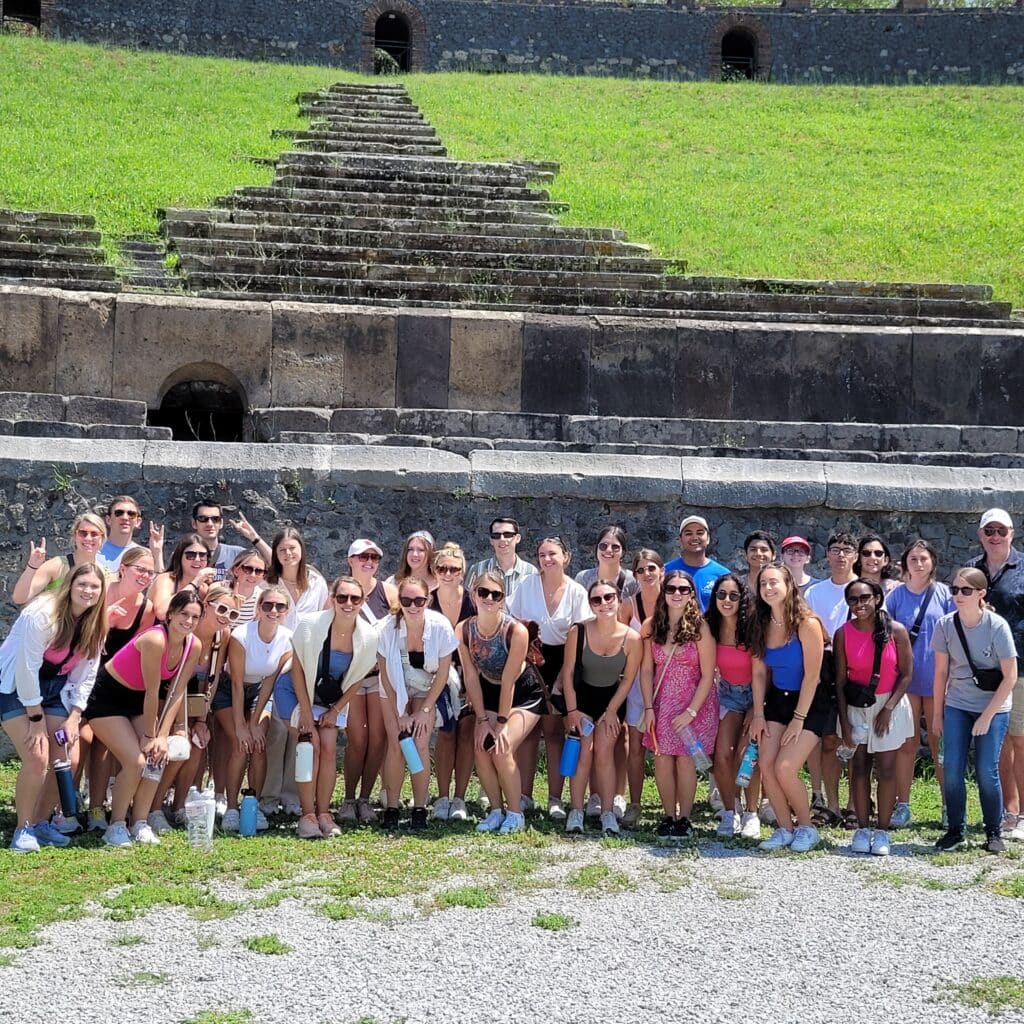
This summer was Hurlburt’s first time leading the program, but she has an extensive background in Italian history. She studied the subject while earning her M.A. and Ph.D. in European history from Syracuse University, and she worked on a summer study abroad program in Italy for art history students while at Syracuse. Additionally, she authored two books on women, gender, politics and the state in late medieval/early modern Venice and the Mediterranean.
In spring 2022, Hurlburt embarked upon new territory of her own when she traveled to Prague for the first time while also leading a group of students to the NC State European Center in Prague. For the program, she taught an interdisciplinary Introduction to Research Methods course as well.
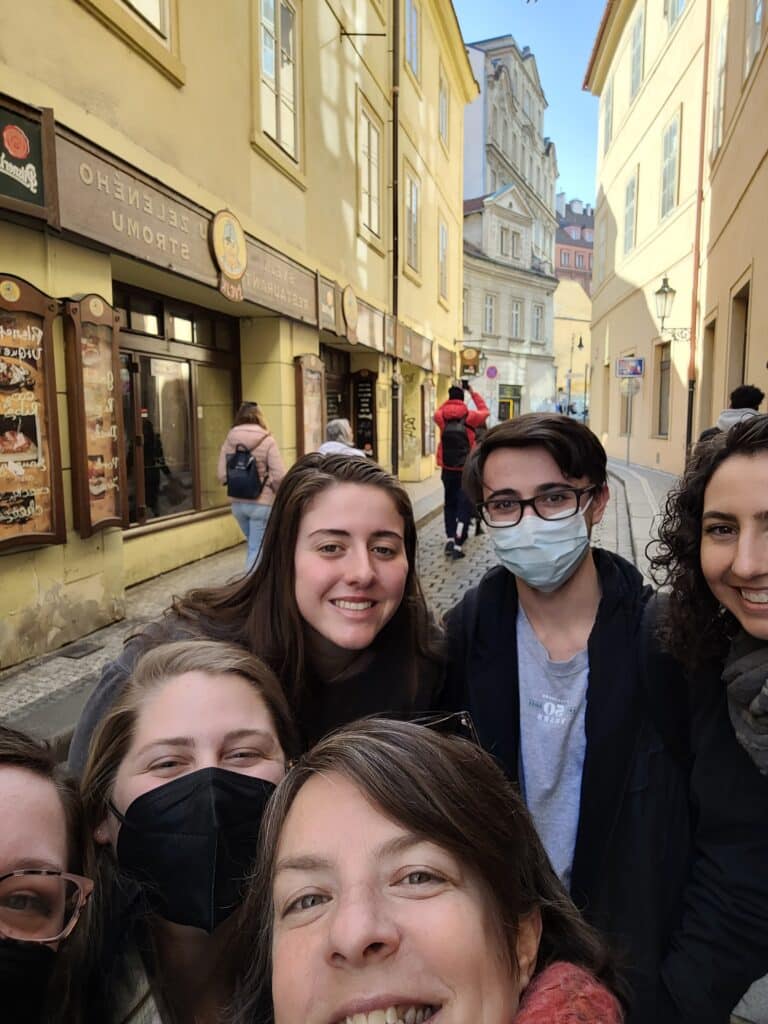
“We had engineers, we had chemists and we had social scientists, and the idea was not to actually do the research but to learn the skills to pose a really good research question, which means doing a lot of background work,” Hurlburt explained. “The Prague component was supposed to help students match with research partners at the Prague center who work in their area of interest and might have insights into the research question that they’re asking.”
For many of the students on both trips, it was their first time leaving the country. Others had never even left North Carolina.
“There is something absolutely amazing about seeing a student conquer their fears and anxieties and experience something that they didn’t even know was possible,” Hurlburt said.
Closer to Home
When she’s not introducing students to different countries and cultures around the globe, Hurlburt also helps new members of the Wolfpack get acquainted with the NC State campus and the city of Raleigh. In 2022, she helped start the Rooted in Raleigh program, which was intended to help students in the University Honors Program come to campus early to establish community, introduce them to their fellow students, help them find their way around campus and show them opportunities to engage with people and organizations in the greater Raleigh community.
The theme for the inaugural program was food, and during the three-day program students took a field trip to NC State alumni-owned businesses 321 Coffee and A Place at the Table. They also took a city bus to the State Farmers Market and the Agroecology Education Farm.
“We wanted to get students thinking about the fact that NC State is an urban campus that provides them with unique learning opportunities both on and off campus,” Hurlburt said. “We based our thinking on a pedagogy called ‘City as Text,’ which basically means that you can investigate an urban space the same way you read a book. You can study it, you can ask questions and you can research various topics and issues associated with it.”
The Rooted in Raleigh program returned this fall and featured nearby Dix Park. Students participated in a series of workshops, including one with Lincoln Larson, an associate professor in the College of Natural Resources, who discussed his conservancy work for the park. They also took a walking tour of Dix Park, met staff and learned about the park’s history. Students were then tasked with generating research ideas related to the park’s conservation efforts. They were introduced to Catherine Showalter, associate director for the Office of Undergraduate Research, and Alexander Valencia, student success librarian for NC State University Libraries, who acquainted them with resources and helped them develop their ideas. Each student then gave a five-minute presentation about the research topic they chose.
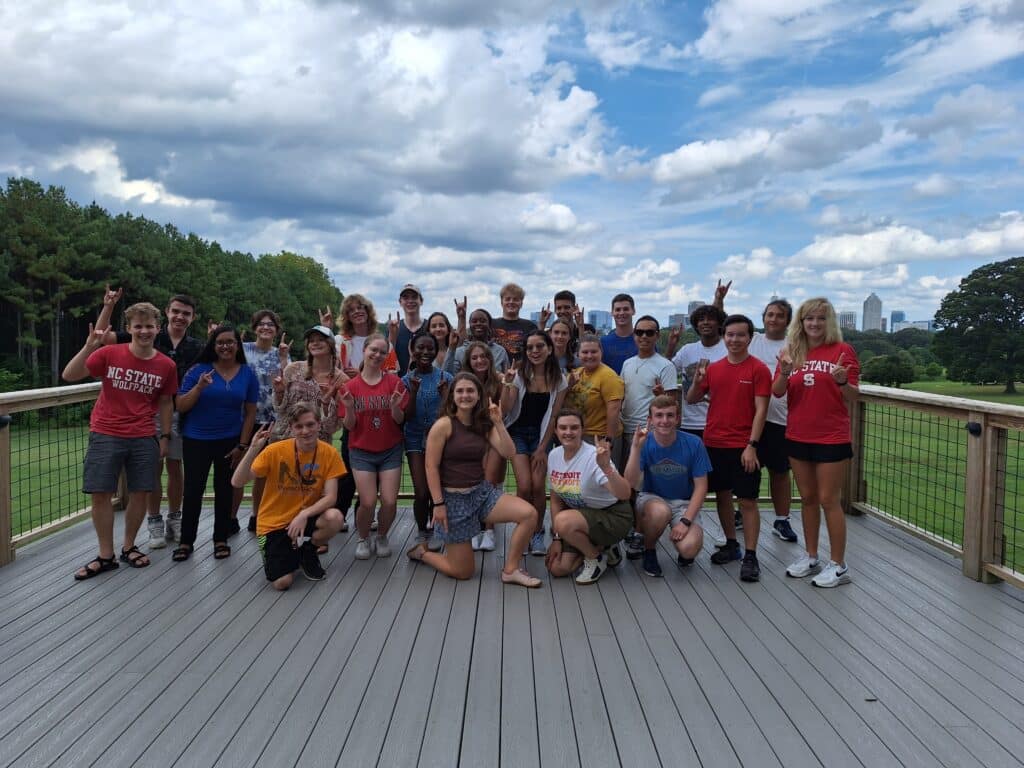
“What they came up with was jaw-dropping,” Hurlburt said. “Some of them talked about how to improve donor outreach and community response. Others talked about installing solar panels and creating history walks, and one talked about the psychology of spending time in a park. The director of engagement and outreach for Dix Park attended those talks, and he told the students that he was going to present all of their ideas to the board. That was pretty magical.”
FYI, She Teaches Classes, Too
In addition to all of her other involvements around campus, Hurlburt oversees the First-Year Inquiry (FYI) program. FYI prides itself on helping first-year students sharpen critical and creative thinking skills, enhance the development of their intellectual maturity and increase responsibility for their own learning. Another hallmark of the program is small class sizes — none of the courses have more than 20 students enrolled.
Hurlburt strongly believes in the program because she benefited from similar classes in her own undergraduate education.
“As a freshman at my institution, I kind of lucked into a couple of small classes,” Hurlburt said. “I found I was so much more engaged learning in a room with 20 people than a room with 200, and that’s kind of the philosophy behind First-Year Inquiry — to bring students into spaces where they can meet each other, get to know the faculty and pursue knowledge in interesting and creative ways.”
This fall there are 18 FYI classes being taught around the university. One of the newest is Intro to Sustainability, offered through the College of Natural Resources.
“They do such a good job, even at the freshman level, of introducing students to the idea that you need multiple disciplines to solve a problem,” Hurlburt said. “So from the word ‘go,’ that class is super interdisciplinary and has been very popular.”
Another of the most popular courses is World Population and Food Prospects, taught by Bob Patterson, Alumni Distinguished Professor of Crop Science.
“If I had my way, every student entering NC State would have a class with Bob Patterson,” Hurlburt said. “He’s been here my entire adult life and knows everything and everyone. His goal is to make sure students understand where they are, and so he takes them on field trips and they do a Belltower tour with Dr. [Thomas] Stafford. It’s exactly the sort of thing you really want to give students in their first year.”
While she hasn’t yet taught an FYI class, Hurlburt has taught others. Her first two summers at NC State (2020 and 2021), she taught Sweet: A Short History of Sugar. The course was originally supposed to have an international component in which students would embark on a study-abroad program to Oxford University. Instead, the COVID-19 pandemic forced the class to be entirely remote the first year and hybrid in 2021.
Pathways for All: Learning by Doing
One of Hurlburt’s most recent ventures is serving as a proposal committee member for NC State’s 2024-29 Quality Enhancement Plan, the theme for which is PackWays for All: Learning by Doing. The five-year initiative is being developed as part of the university’s reaccreditation process, and much of it will involve experiential learning such as internships, study abroad, co-op programs and more areas that fall under Hurlburt’s purview. Hurlburt believes that these experiences not only help prepare students for successful careers, but they also build soft skills.
“This past summer in Italy, I saw students flourish who were maybe lacking in confidence prior to our trip, but along the way they learned something really valuable about themselves,” Hurlburt said. “Students who study abroad or do research learn that sense of, ‘I can do this, and I’m contributing to something important.’ That’s such a crucial confidence boost for them right now, in particular, because of the mental health issues we’ve seen and the financial issues that students experience.”
Along these lines, Hurlburt has also turned her focus to diversity and inclusion, particularly for study abroad and research opportunities. She noted that three students who traveled with her to Italy this summer received financial assistance through private support. One of the students told her multiple times, “There was no way I could have done this without financial support.” That same gift supported a total of 38 Honors Program students studying abroad in five continents this summer.
Other students also expressed their gratitude for donor support.
“Since I was a kid, my family would tell me stories of our heritage and the Italian way of life,” one student said. “I always desired to go but could never afford it on my own. I am grateful to this donation for allowing me to explore my ancestry and appreciate Italian culture. I can’t wait to return to Italy and especially explore the south where my family comes from.”
“[This experience] made me realize how energizing and reflective it can be to have constant engagement with art,” another student added.
Hurlburt noted that financial constraints are not the only barrier students face when considering studying abroad. Of the students who traveled to Italy, the vast majority identified as female, and she has noticed that male-identifying students typically are less involved in these experiences. There is also work to be done to increase representation of LGBTQ+ students.
Additional obstacles include the lingering effects of the COVID-19 pandemic, environmental crises, world events like the Russian invasion of Ukraine and the anxiety associated with each of those factors.
“If you’re a student making the choice to study abroad, there are a lot of things that could hold you back,” Hurlburt said. “And then on top of all of that, there’s the social anxiety of, ‘Will I like the people I’m with? How will I be received in the country we’re traveling to?’ I think there’s a lot of barriers, or perceived barriers, standing in the way of studying abroad for many of our students.”
Still, one of Hurlburt’s favorite parts of her job is seeing students overcome these barriers and gain confidence by finding success in unfamiliar situations. She also enjoys advocating for and touting the success of all the departments she oversees.
“Since we are a siloed institution and sometimes we only know what’s right here in front of us, I think my favorite part of my work is talking to other people around campus about what these programs are about and what we’ve achieved,” Hurlburt said. “I find that most rewarding.”
NC State employees are hard at work in every corner of North Carolina, producing research and delivering programs and services that impact the lives of citizens across the state. The Beyond the Bricks series shines a light on those people and programs making big things happen outside our Raleigh campus. Read more stories here.
- Categories:


